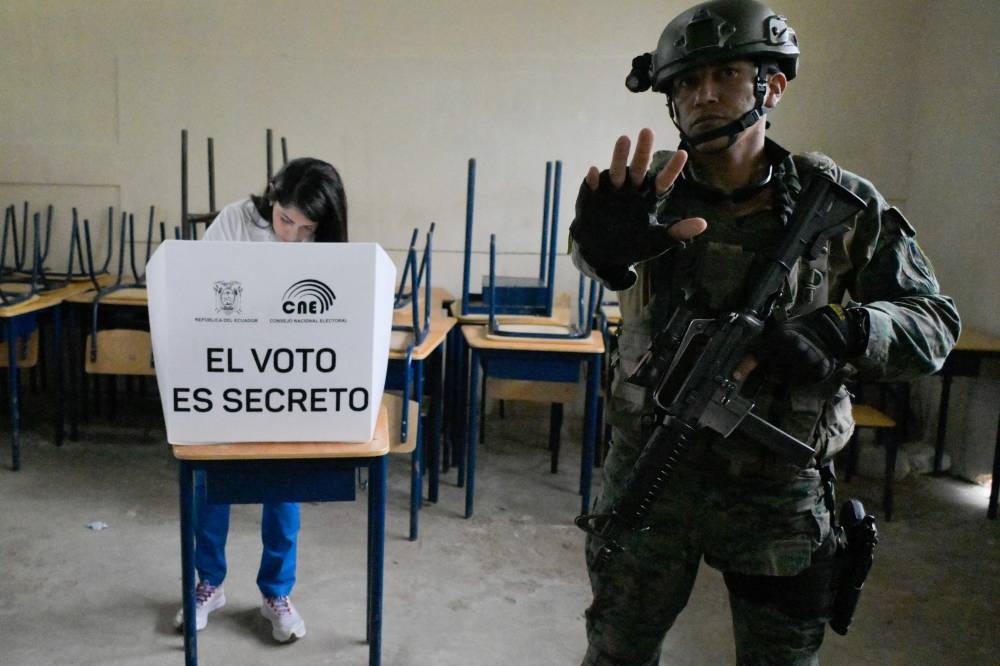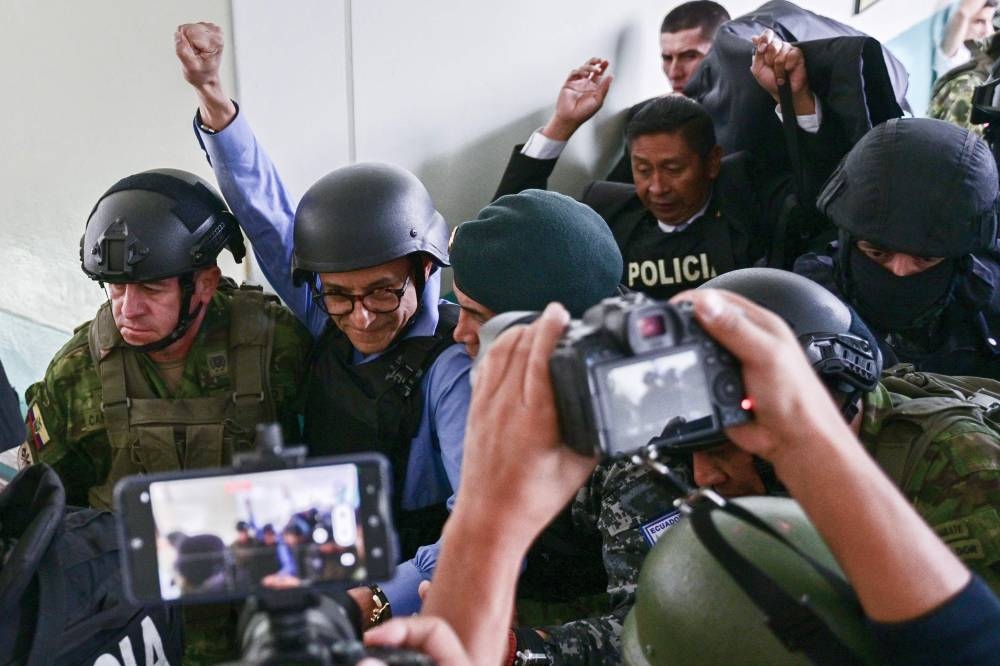Ecuadoreans were voting on Sunday to choose a president and legislature they hope will lead the country out of a spiral of violence and economic troubles after a campaign darkened by bloodshed.
Candidates have pledged to fight sharp increases in crime, which the current government blames on drug gangs, and improve the struggling economy, whose woes have caused an uptick in unemployment and migration.
Security has taken centre stage in the contest since the August 9 murder of anti-corruption candidate Fernando Villavicencio, a former investigative journalist and lawmaker who was gunned down while leaving a campaign event.
Six suspects, all Colombians police say belong to criminal gangs, were charged with Villavicencio’s murder and are being held.
Another suspect died from wounds sustained in a shootout with authorities.
Other candidates have reported attacks against them, although in several cases police have said that the violence was not directed at the hopefuls themselves.
Voters at the polls in Quito and Guayaquil said security is their major focus.
“First is security, and then the economy and jobs. Without security there isn’t investment, there aren’t companies, there aren’t jobs,” said public employee Patricia Simbaña, who voted at an elementary school in the capital where Cristian Zurita, Villavicencio’s replacement, cast his ballot amid a scrum of journalists and heavily armed soldiers.
Simbaña said she was voting for pro-market candidate Otto Sonnenholzner, who has hardened his discourse since the murder, repeatedly promising that criminals who use violence will be shot by police under his government.
“It’s time now to act with a firm hand,” she said.
In coastal Guayaquil, where crime has spiked in recent years, hometown law-and-order candidate Jan Topic – who says that he was a member of the French Foreign Legion and has pledged to solve security problems first – was attracting support.
“Without security we can’t live, we can’t do anything at all,” said 24-year-old psychology student Maria Jose Cabrera, who also cited the need for jobs for young people and a fight against corruption.
Luisa Gonzalez, a protégé of former president Rafael Correa, led polling before Villavicencio’s killing with about 30% of voting intention.
She voted in Manabi province and predicted that the contest would not go to a second round.
A candidate needs 50% of the vote, or 40% if they are 10 points ahead of their nearest rival, to win in a first round. Otherwise, a second round is held, which would occur on October 15.
Gonzalez has promised to free up $2.5bn from international reserves to bolster Ecuador’s economy as well as bring back social programmes implemented by Correa – who has since been convicted of corruption – during his decade in power.
Her Citizens’ Revolution party said on X, the social network previously known as Twitter, that Ecuadoreans voting from abroad were having trouble with the online system set up for them.
Zurita, Villavicencio’s replacement for the Construye party, has promised to better equip the police and enshrine intelligence protocols to fight crime, using international loans to shore up social programmes.
Villavicencio’s name and photo will appear on the ballots, which were printed before his murder.
Environmentalist Indigenous candidate Yaku Perez has said he would revise mining concessions that do not comply with environmental and social rules and ask creditors for breathing room, while Daniel Noboa, son of prominent banana businessman and former candidate Alvaro Noboa, has centred his campaign on job creation.
Also on Sunday’s ballot are two environmental referendums – both expected to pass – that could block mining in a forest near Quito and development of an oil block in the Amazon.
The 13mn-strong electorate will also choose 137 members of the national assembly.

Left: Presidential candidate Luisa Gonzalez votes under heavy security at a polling station in Canuto, Manabi province.

Presidential candidate Christian Zurita gestures under heavy security at a polling station in Quito.
